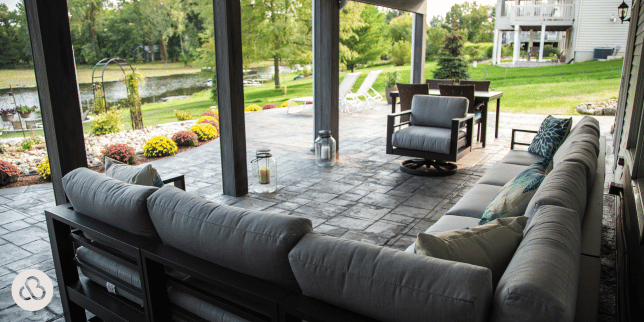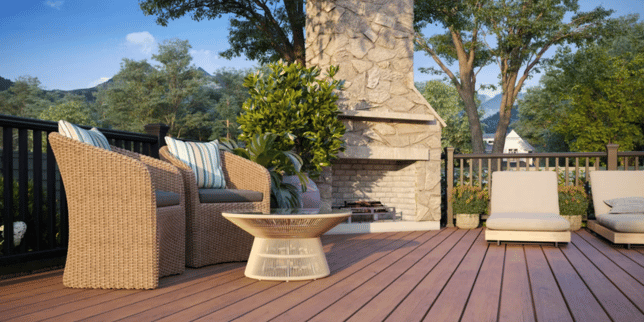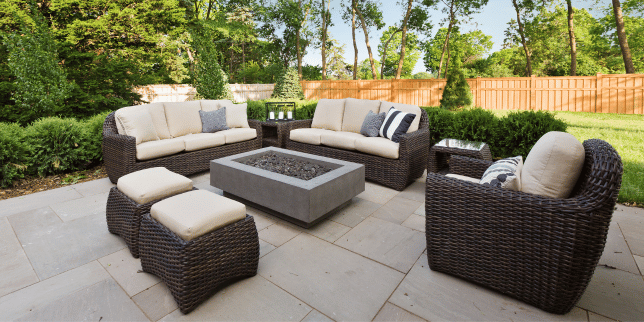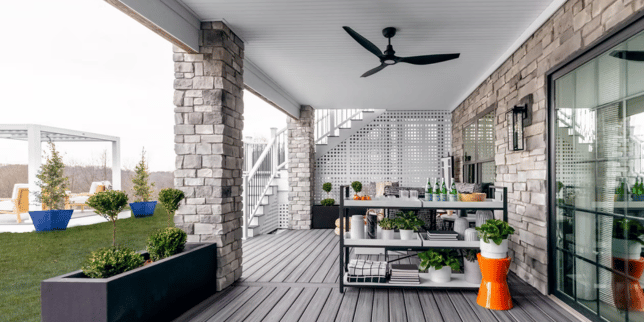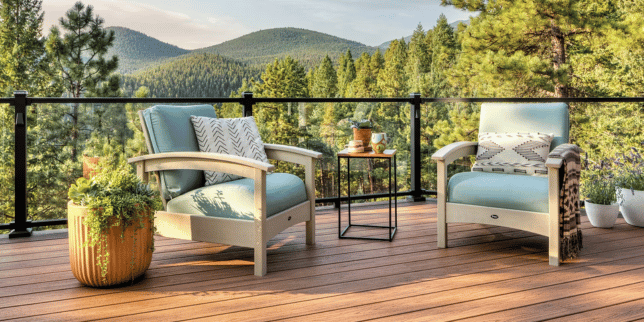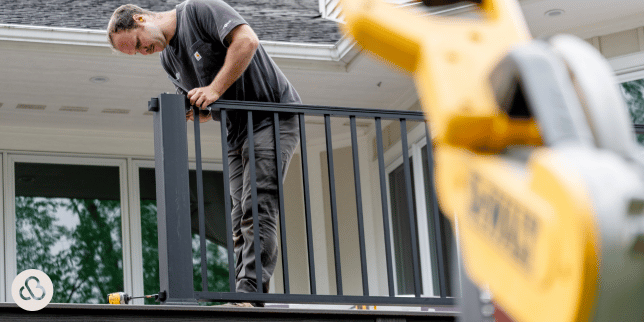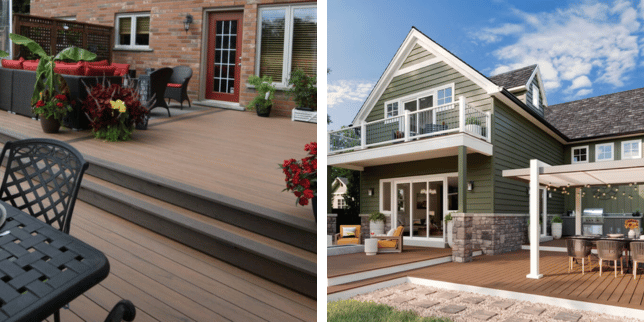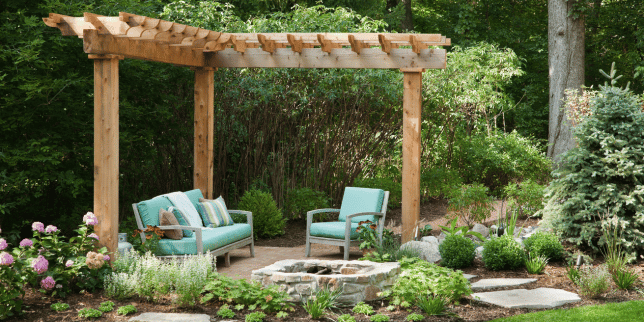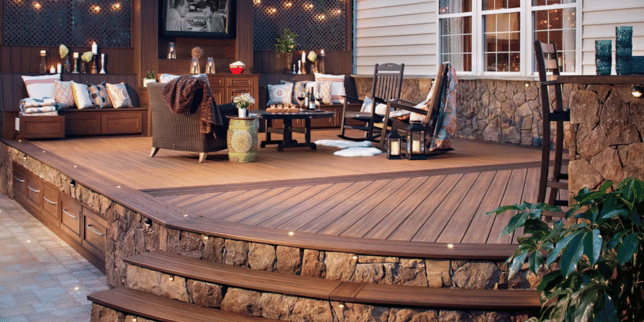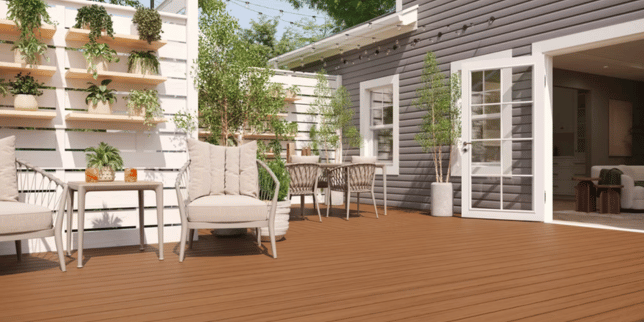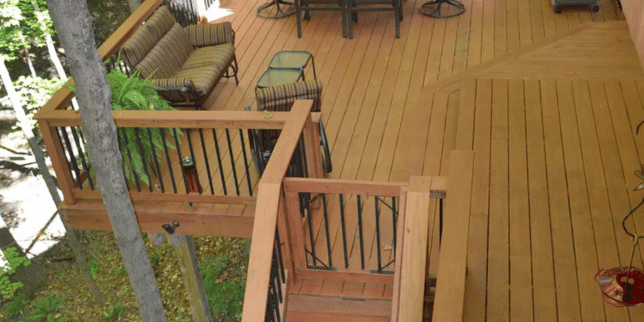Top 9 Pathway and Walkway Ideas for Your Michigan Outdoor Living Space
October 8th, 2025
4 min read
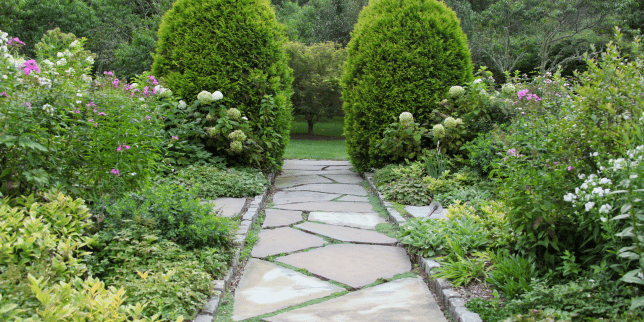
A well-designed pathway does more than guide your steps; it sets the tone for your entire outdoor living space. The challenge is figuring out which material and style will work best for your home. With so many options, it’s easy to feel overwhelmed by cost, durability, and upkeep.
At Custom Built Design & Remodeling, we’ve helped Michigan families design outdoor spaces that balance beauty and practicality for two decades. Our team understands how the right walkway can tie together a deck, garden, or entryway, while also making the space safer and more enjoyable.
In this article, we’ll walk through the top nine pathway and walkway ideas, exploring their pros, cons, and unique features. By the end, you’ll have a clearer sense of which option fits your budget, style, and lifestyle:
- Natural Stone Pathways
- Paver Walkways
- Stamped Concrete Paths
- Gravel or Crushed Stone Walkways
- Brick Pathways
- Wood Plank or Timber Walkways
- Mixed Material Walkways
- Grass Pathways
- Adding Lighting to Walkways
1. Natural Stone Pathways
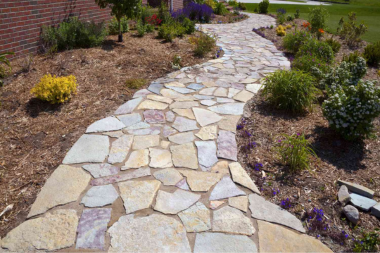
PC: The Spruce
Natural stone pathways, like flagstone or cut bluestone, create a high-end look that fits a variety of aesthetics. From rustic to elegant, stone brings natural beauty that stands out in any yard.
Pros:
- Beautiful and timeless appeal
- Works with many design styles
- Flexible layout and design options
Cons:
- Most expensive choice due to material and mining costs
2. Paver Walkways
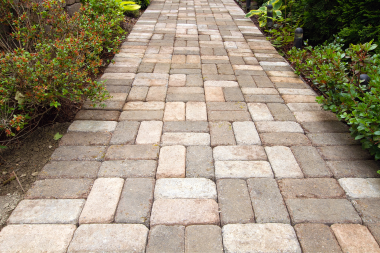
Pavers offer flexibility with colors, shapes, and patterns, giving you endless design options. They’re laid over sand, which makes them easy to adjust if needed.
Pros:
- Wide range of colors and patterns
- Easy to reinstall or level if movement occurs
- Durable and versatile
Cons:
- Natural seasonal shifts can cause dips or humps
- Requires occasional maintenance
3. Stamped Concrete Paths
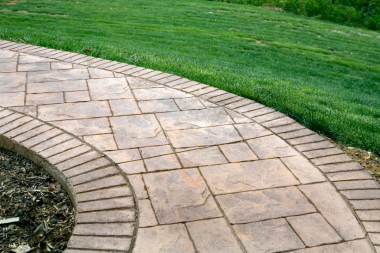
Stamped concrete mimics the look of brick or stone without the higher material costs. It’s a cost-effective way to get a custom look.
Pros:
- More affordable than stone
- Can be stamped or stained for customization
- Clean, modern appearance
Cons:
- Fewer color options than pavers or brick
- Can crack and requires good drainage planning
4. Gravel or Crushed Stone Walkways
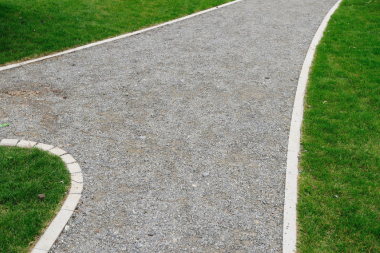
Gravel paths offer a rustic charm and are a budget-friendly option. They work well in gardens or as secondary pathways.
Pros:
- Cost-effective
- Flexible design styles
- Works well paired with edging for definition
Cons:
- Harder to clean leaves and debris
- Stones can scatter outside the path
- Not as comfortable on bare feet
5. Brick Pathways
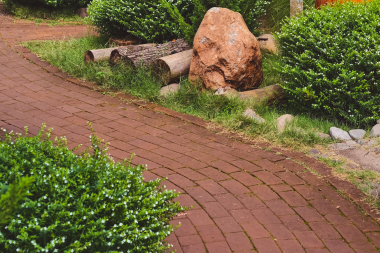
Brick is a classic choice that never goes out of style. It works for traditional homes and can be finished in ways that either highlight its rich color or allow natural fading over time.
Pros:
- Timeless, traditional appeal
- Wide range of shades and styles
- Can be sealed for color protection
Cons:
- Can bow or shift if tree roots grow underneath
- Higher cost than pavers, but less than natural stone
6. Wood Plank or Timber Walkways
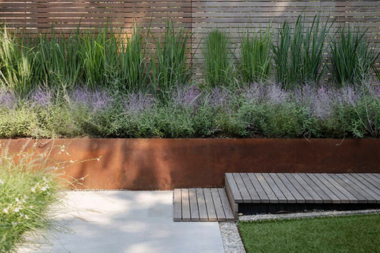
PC: Gardenista
Wood pathways feel natural and inviting, especially for lakefront or wooded properties. They’re often used to complement cabins or waterfront homes.
Pros:
- Warm, natural aesthetic
- Lower cost than stone
- Works well with water-adjacent homes
Cons:
- Prone to rot, bugs, and splinters
- Not as long-lasting as other options
7. Mixed Material Walkways
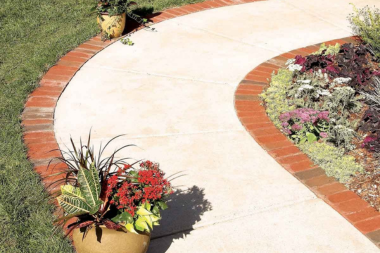
PC: Family Handyman
Combining materials, such as a concrete path with a brick border or wood accents, allows you to create a more unique, custom look.
Pros:
- Adds personality and design variety
- Elevates a simple pathway into a feature
- Many creative combinations are possible
Cons:
- Different materials may shift differently over time
- Costs vary depending on selections
8. Grass Pathways
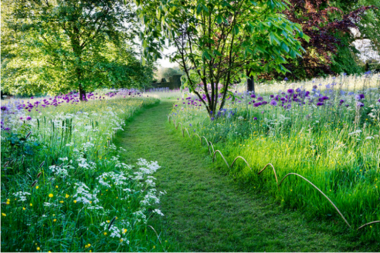
PC: Gardenista
Grass or wildflower walkways are the most natural and budget-friendly choice. They blend seamlessly into your yard, but they require more upkeep.
Pros:
- Inexpensive
- Works well in casual gardens
- Can attract birds, bees, and wildlife
Cons:
- High maintenance
- May attract snakes or mice in certain areas
9. Adding Lighting to Walkways
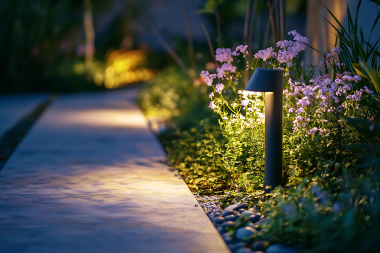
Lighting can make any pathway safer and more inviting. Options include integrated lights in wood or concrete, solar lights set in gravel or stone, or small brick walls with built-in lighting.
Pros:
- Improves safety and visibility at night
- Adds ambiance and highlights design features
- Flexible options from solar to electrical
Cons:
- Solar lights may not last through the night
- Concrete-embedded lights are difficult to repair if damaged
- Electrical lighting requires additional outlets and wiring
5 Ways to Choose the Right Pathway or Walkway Idea for Your Outdoor Living Space
With so many beautiful options available, choosing the right pathway or walkway comes down to a mix of style, budget, and function. Here are a few things to keep in mind:
1. Match the style of your home and yard
A traditional brick pathway may feel right at home with a colonial-style house, while sleek stamped concrete or cut blue stone fits better with modern architecture.
2. Think about maintenance
If you prefer low upkeep, concrete or pavers might suit you better than gravel or grass pathways, which require frequent attention.
3. Consider comfort
Some materials, like gravel or wood planks, are less forgiving on bare feet, while smooth stone or concrete offers a softer step.
4. Balance your investment goals and longevity
Natural stone creates a high-end look but comes with a higher cost. Wood is inviting and budget-friendly, but it won’t last as long as stone or brick.
5. Look at the bigger picture
Think about how the pathway connects to your outdoor living space. A well-placed walkway should enhance how you move through the yard and tie together the overall design.
Next Steps to Remodeling Your Outdoor Living Space
The right pathway or walkway blends beauty with function, turning everyday movement through your yard into a more enjoyable experience.
You’ve learned the strengths and drawbacks of materials like stone, brick, concrete, gravel, wood, and even lighting, giving you a clear picture of what might fit your home.
At Custom Built Design & Remodeling, we help families in Michigan design outdoor spaces that bring beauty, comfort, and connection to everyday life.
If you’re ready to explore the best pathway or walkway for your yard, reach out to our team to start planning your outdoor transformation.
Now that you know more about the top pathway and walkway ideas, let’s explore the top flora to plant for your oasis, how much composite decks cost, and the projects that can increase the resale value of your home:
- 10 Best Plants for Your Michigan Deck - Discover the top foliage to incorporate into your Michigan outdoor living space for top-tier aesthetics and durability.
- How Much Do Composite Decks Cost in Lansing, Michigan? - An overview of how much your Lansing composite deck will cost and the factors that will influence your price.
- 5 Remodeling Projects That Can Increase Resale Value - A high-level review of the various remodeling projects that will increase your home’s resale value, curb appeal, and return on investment.
Christine is the Lead Designer at Custom Built, bringing over 10 years of experience in custom homes, full interior remodels, and landscape design from design-build firms in Oregon and Michigan. A University of Michigan Taubman College graduate, she develops initial concepts, floor plans, curated selections, and detailed construction documents, turning clients’ visions into expertly crafted realities while staying aligned with Custom Built’s mission to positively impact the community.
Topics:















